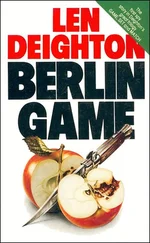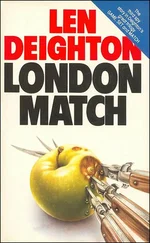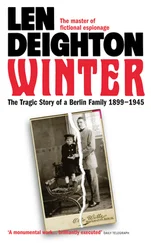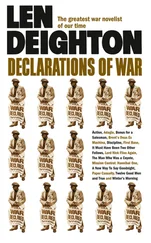When writing the main text begins I have found it beneficial to step away from phones and friends and any social commitments. Together with my wife Ysabele and two small children I climbed into an old Volvo with its trunk crammed with research material. We went to Tuscany. My friend Al Alvarez the writer and broadcaster lent us his wonderful mountainside house near Barga. It was winter and, no matter about the pictures in the brochures, winter in northern Italy is cold and wet. I searched far and wide for an electric typewriter and failed to find one. All I could find was a tiny lightweight portable Olivetti Lettera 22. Yes I know the Lettera 22 is an icon of the nineteen fifties and is found in design museums, but after the soft touch joys of an electric machine, pounding the mechanical keyboard took a lot of getting used to. My fingers swelled up like salsiccia Toscana . But rural Italy worked its magic. Our elderly ‘next door’ neighbours adopted us. Signora Ida and her husband Silvio lavished our children with love, made pizzas for us in their outdoor oven and showed us the secret of making ravioli and the secret of happiness on the slim budget that a few olive trees provide. We will never forget those two wonderful people. They made my time in Tuscany writing SS-GB one of the happiest times of my happy life.
Len Deighton, 2009
‘In England they’re filled with curiosity and keep asking, “Why doesn’t he come?” Be calm. Be calm. He’s coming! He’s coming!’
Adolf Hitler. 4 September 1940, at a rally of nurses and social workers in Berlin .
Oberste Befehlshaber
Berlin, den 18.2.41
Der Oberste Befehlshaber der Wehrmacht
10 Ausfertigungen Ausfertigung

Instrument of Surrender – English Text. Of all British armed forces in United Kingdom of Great Britain and Northern Ireland including all islands.
1 The British Command agrees to the surrender of all British armed forces in the United Kingdom and Northern Ireland including all islands and including military elements overseas. This also applies to units of the Royal Navy in all parts of the world, at port and on the high seas.
2 All hostilities on land, sea and in the air by British forces are to cease at 0800 hrs Greenwich Mean Time on 19 February 1941.
3 The British Command to carry out at once, without argument or comment, all further orders that will be issued by the German Command on any subject.
4 Disobedience of orders, or failure to comply with them, will be regarded as a breach of these surrender terms and will be dealt with by the German Command in accordance with the laws and usages of war.
5 This instrument of surrender is independent of, without prejudice to, and will be superseded by any general instrument of surrender imposed by or on behalf of the German Command and applicable to the United Kingdom and the Allied nations of the Commonwealth.
6 This instrument of surrender is written in German and English. The German version is the authentic text.
7 The decision of the German Command will be final if any doubt or dispute arises as to the meaning or interpretation of the surrender terms.
‘Himmler’s got the king locked up in the Tower of London,’ said Harry Woods. ‘But now the German Generals say the army should guard him.’
The other man busied himself with the papers on his desk and made no comment. He thumped the rubber stamp into the pad and then on to the docket, ‘Scotland Yard. 14 Nov. 1941’. It was incredible that the war had started only two years ago. Now it was over; the fighting finished, the cause lost. There was so much paperwork that two shoe boxes were being used for the overflow; Dolcis shoes, size six, patent leather pumps, high heels, narrow fitting. Detective Superintendent Douglas Archer knew only one woman who would buy such shoes: his secretary.
‘Well, that’s what people are saying,’ added Harry Woods, the elderly Sergeant who was the other half of the ‘murder team’.
Douglas Archer initialled the docket and tossed it into the tray. Then he looked across the room and nodded. It was a miserable office, its green and cream painted walls darkened by age and the small windows heavily leaded and smeared by sooty rain, so that the electric light had to be on all day.
‘Never do it on your own doorstep,’ advised Harry now that it was too late for advice. Anyone other than Harry, anyone less bold, less loquacious, less well-meaning would have stopped at that. But Harry disregarded the fixed smile on his senior partner’s face. ‘Do it with that blonde, upstairs in Registry. Or that big-titted German bird in Waffen-SS liaison – she puts it about they say – but your own secretary…’ Harry Woods pulled a face.
‘You spend too much time listening to what people say,’ said Douglas Archer calmly. ‘That’s your trouble, Harry.’
Harry Woods met the disapproving stare without faltering. ‘A copper can never spend too much time listening to what other people say, Super. And if you faced reality, you’d know. You may be a bloody wonderful detective, but you’re a shocking bad judge of character – and that’s your trouble.’
There weren’t many Detective Sergeants who would dare speak to Douglas Archer like that but these two men had known each other ever since 1920, when Harry Woods was a handsome young Police Constable with a Military Medal ribbon on his chest, and a beat littered with the broken hearts of pretty young housemaids and the hot meat pies of doting cooks. While Douglas Archer was a nine-year-old child proud to be seen talking to him.
When Douglas Archer became a green young Sub-Divisional Inspector, straight from the Hendon Police College, with no more experience of police work than comes from dodging the Proctors in the back streets of Oxford, it was Harry Woods who had befriended him. And that was at a time when such privileged graduates were given a hard time by police rank and file.
Harry knew everything a policeman had to know and more. He knew when each night-watchman brewed tea, and was never far from a warm boiler house when it rained. Harry Woods knew which large piles of rubbish would have money under them, never taking more than a third of it, lest the shopkeeper found some other way to pay the street-cleaners for their extra work. But that was a long time ago, before the generosity of the publicans and barmen of London’s West End had provided Harry with his ruddy face and expanded his waistline. And before Douglas Archer’s persistence got him into CID and then to Scotland Yard’s Murder Squad.
‘C Division have got a juicy one,’ said Harry Woods. ‘Everyone else is busy. Shall I get the murder bag ready?’
Douglas knew that his Sergeant expected him to respond in surprise, and he raised an eyebrow. ‘How the devil do you know about it?’
‘A flat in Shepherd Market, crammed with whisky, coffee, tea and so on, and Luftwaffe petrol coupons lying around on the table. The victim is a well-dressed man, probably a black-marketeer.’
‘You think so?’
Harry smiled. ‘Remember that black-market gang who killed the warehouse manager in Fulham…they were forging Luftwaffe petrol coupons. This could be the same mob.’
‘Harry. Are you going to tell me where all this information comes from, or are you going to solve the crime without getting out of your seat?’
‘The Station Sergeant at Savile Row is an old drinking pal. He just phoned me. A neighbour found the body and told the police.’
‘There’s no hurry,’ said Douglas Archer. ‘We’ll move slowly.’
Читать дальше













